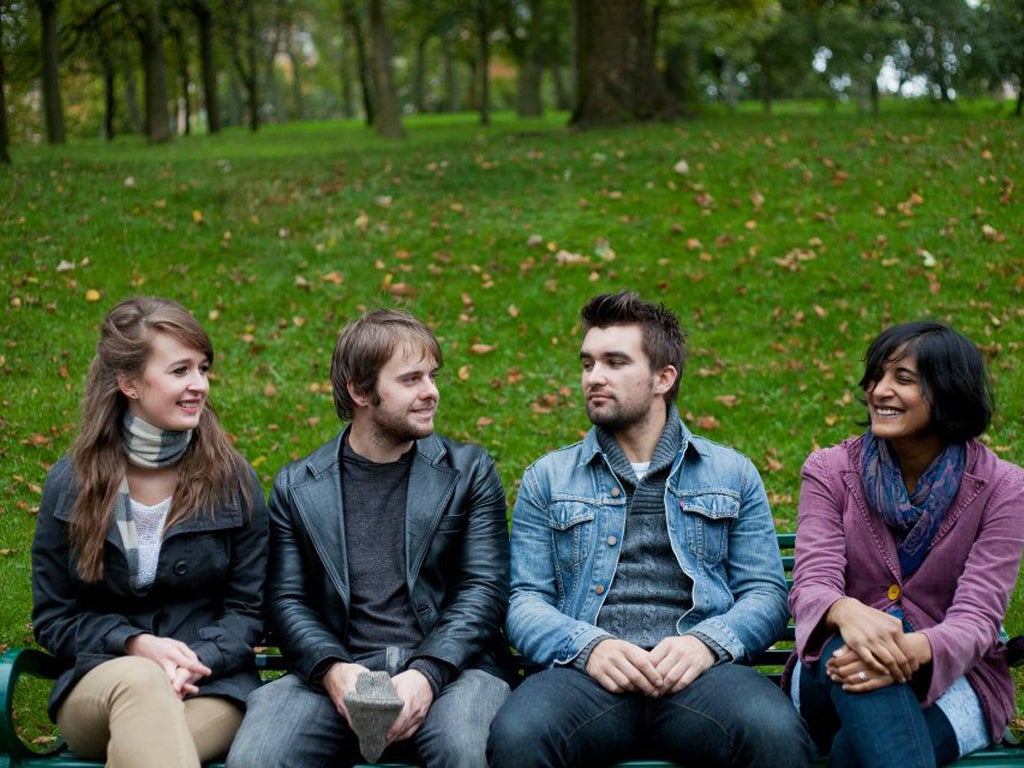A music event you won't be singing along with
Only artists who perform in obscure languages can compete in tonight's Liet International Song Contest

Your support helps us to tell the story
From reproductive rights to climate change to Big Tech, The Independent is on the ground when the story is developing. Whether it's investigating the financials of Elon Musk's pro-Trump PAC or producing our latest documentary, 'The A Word', which shines a light on the American women fighting for reproductive rights, we know how important it is to parse out the facts from the messaging.
At such a critical moment in US history, we need reporters on the ground. Your donation allows us to keep sending journalists to speak to both sides of the story.
The Independent is trusted by Americans across the entire political spectrum. And unlike many other quality news outlets, we choose not to lock Americans out of our reporting and analysis with paywalls. We believe quality journalism should be available to everyone, paid for by those who can afford it.
Your support makes all the difference.Their performance lacks the gimmicky costumes and lyrical banality of Eurovision. The finalists in the Liet International Song Contest will tonight sing to breathe new life into the very languages that they speak. Now in its eighth year, the Liet is the only music competition designed to give a stage to artists who sing in neglected or threatened languages.
Singing in English is forbidden at the Liet, established by speakers of the Frisian languages, a minority tongue in Germany and the Netherlands.
About 40 million people speak a minority language in Europe but Unesco estimates that more than 2,500 of the world's 7,000 languages are endangered. Despite the threat of linguistic homogenisation, the bands celebrated at the Liet, held this year in Udine, Italy, are part of a "nu folk" revival which is bringing music in minority tongues to a wider audience at Glastonbury and other European festivals.
Tonight's 12 finalists include Skama la Rede, a ska-punk band singing in Asturian, spoken by 250,000 people in the autonomous Spanish region. Vepsian song, understood by 6,000 speakers, is represented by the accordion-led Noid, from the Finno-Ugric region of Russia.
The Udmurt Republic will be cheering on The Silent Woo Goore, who mix traditional Udmurt folk with modern, global sounds. "Home nations" music fans might be hoping for a victory by Macanta, a Glasgow-based band who sing in Scottish Gaelic over a blend of guitars, viola, clarsach and drums.
They are led by Dòl Eoin, a singer-songwriter from the Isle of Harris, who began writing in Gaelic following a revelation in his first Gaelic dream.
Irish Gaelic is represented by Aoife Scott, who grew up in a performing family and became immersed in Gaelic song from listening to her grandparents, mother, aunt and uncles making music around the fire.
Scott, who believes Gaelic song is becoming "cool", has embraced the role of Irish "musical ambassador" at the contest and is hoping to meet tour promoters who are seeking new talent to add to the European festival circuit.
This year's Liet final welcomes the Rumantsch, Udmurtian, Burgenland-Croat and Ladinian languages for the first time. Udine was chosen as the venue because the province is the home of the Friûlan "Romance" language, which has 800,000 speakers.
Enjoy unlimited access to 100 million ad-free songs and podcasts with Amazon Music
Sign up now for a 30-day free trial
Enjoy unlimited access to 100 million ad-free songs and podcasts with Amazon Music
Sign up now for a 30-day free trial
Singing in tongues: The competitors
Noid Quartet from Karelia, Russia, performing Vepsian songs. Vepsian belongs to the Finnicí group of Uralic languages, has 6,000 speakers.
Coffeeshock Company
Balkan-influenced Austrian rock/reggae band singing in Burgenland-Croatian, spoken by 20,000 people in the easternmost part of Austria.
Rezia Ladina
Singer from Engadine in the Swiss Alps, her mother tongue is Vallader, spoken by 35,000 inhabitants in the canton of Grisons.
The Silent Woo Goore
From Russia's Udmurt Republic. There are about 550,000 Udmurt speakers.
Join our commenting forum
Join thought-provoking conversations, follow other Independent readers and see their replies
Comments